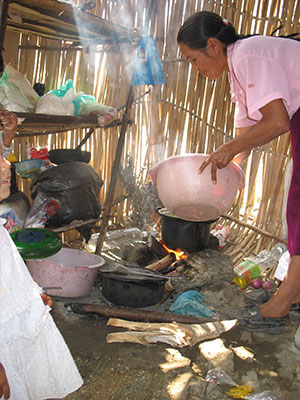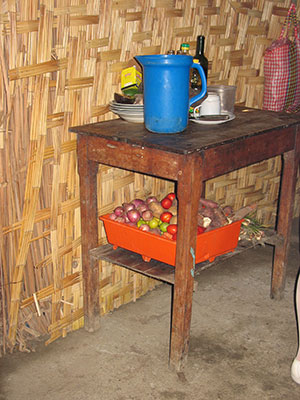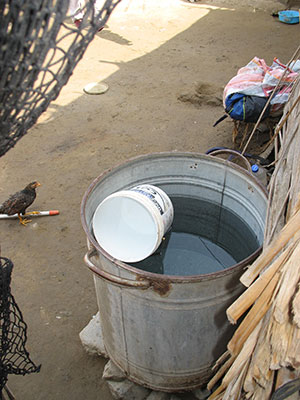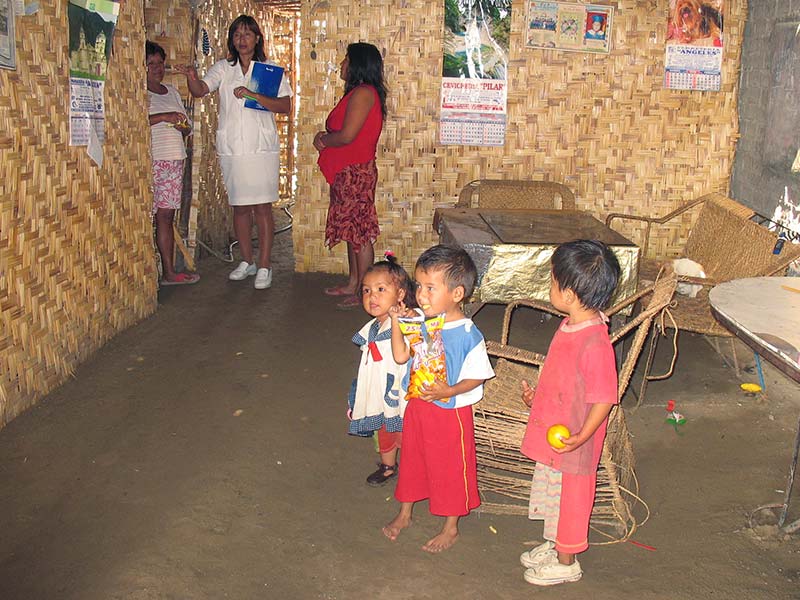Government restrictions drastically impact services to the poor
During the coronavirus pandemic, we hear daily reminders of the importance of basic hygiene and social distancing: wash your hands frequently, clean surfaces diligently, isolate in your home, only go shopping once a week.
Now imagine that you live in a one-room shack that has walls made of woven reeds. Your house is structurally fastened to the houses on either side, with just a single woven mat wall separating your family from your neighbors. You have no soap and no running water. When you can afford food, you must always go to the market because you have no electricity or refrigeration, and if you can afford the fare, you take a crowded bus to get there. These are the harsh realities for the poor in Chimbote, Peru, who are facing the invisible enemy, COVID-19, with few, if any, resources.
The government regulations during the pandemic are causing a significant disruption of services at the Center for Social Works (COS), as well. The COS director was required to close all facilities except the maternity hospital, emergency clinic, orphanage, lab and pharmacy. No home visits are taking place during the shut-down. The municipal government has instituted a daily curfew from 6 pm to 5 am with no mobilization at all on Sundays unless you are a health care worker or emergency responder.
The biggest financial challenge came when all the specialty medical services had to close, because they are the revenue-generating departments supported by those who can afford to pay. Since the start of the COVID-19 restrictions, the mission’s income has been slashed by 70-80%. At the same time, the government has mandated that employers continue paying their staff members, plus give each of them a $450 bonus. As in the U.S., the price of masks, gloves and other PPE required at the facility have skyrocketed as these items become more scarce.
The COS staff is taking whatever precautions they can to mitigate the spread of COVID-19 at the mission. Prior to entering the compound, everyone must have their temperature taken. Individuals with symptoms of coronavirus are sent to the regional hospital which is better equipped to care for patients with respiratory disease. And staff members with underlying health issues are isolating to avoid getting sick.
At last report, the numbers of those affected by the illness are climbing. While Lima remains the hardest hit city in Peru, cases have now exceeded 100 in Chimbote with two deaths as of mid-April. But as we know from our own experience here in the US, mass testing is not being done yet in most countries, so the actual numbers could be much higher.
At this time, we ask you to pray for the staff, the patients and the people of Chimbote who rely on the COS for their healthcare. A simple gesture, such as saying a Hail Mary every time you wash your hands, will generate a chorus of prayers on their behalf. We will continue to update you as new information becomes available.




